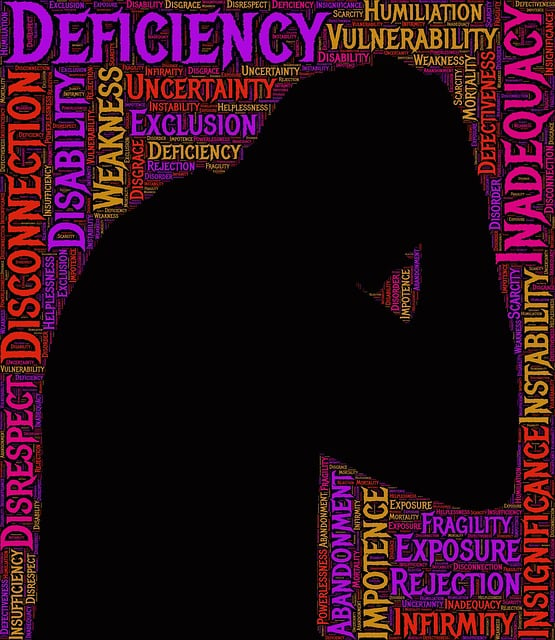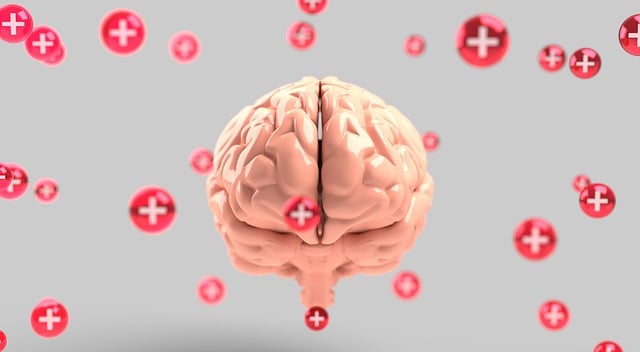Recognizing depression in young children early is crucial for suicide prevention. Unlike older kids who express sadness openly, younger ones show subtle signs like persistent irritability, social withdrawal, concentration issues, or changes in sleep/appetite. Tailored therapies, including Cognitive Behavioral Therapy (CBT) and integrated school services, address underlying issues, reduce stigma, and teach coping strategies. Building self-esteem and resilience through mental wellness coaching programs further prevents depression and promotes open communication about emotional health. Strong family and community connections provide safe spaces for expression, enhancing overall mental wellness.
Depression among young people is a growing concern, with early onset often setting the stage for lifelong struggles. This article delves into crucial strategies to prevent depression and promote mental well-being in youth. We explore the early signs and symptoms of depression in children, discuss therapeutic approaches tailored for their unique needs, and emphasize the significance of building resilience and robust support systems for effective suicide prevention. By implementing these comprehensive strategies, we can foster a healthier and happier future for our young ones.
- Recognizing Depression in Young Children: Early Signs and Symptoms
- Therapeutic Approaches for Depression Prevention in Youth
- Building Resilience and Support Systems: A Comprehensive Strategy for Suicide Prevention
Recognizing Depression in Young Children: Early Signs and Symptoms

Recognizing depression in young children is crucial for timely intervention and prevention of more severe outcomes, including suicide prevention. While older individuals may exhibit overt signs of sadness or hopelessness, younger kids often express their distress through subtle changes in behavior and mood. Early signs can include persistent irritability, withdrawal from social activities, difficulty concentrating, and changes in appetite or sleep patterns. Parents and caregivers should be vigilant for these indicators, as early therapy for young children can significantly alter the course of mental illness.
Social skills training and trauma support services have proven effective in addressing underlying issues that contribute to childhood depression. By fostering a safe and supportive environment, these initiatives aim to reduce the stigma associated with mental illness, encouraging young people to seek help without fear of judgment. Moreover, promoting resilience through activities that build self-esteem and coping mechanisms can prevent depression from taking root or escalating.
Therapeutic Approaches for Depression Prevention in Youth

Depression prevention among youth involves a range of therapeutic approaches tailored to their unique needs. Cognitive Behavioral Therapy (CBT) has proven effective in treating and preventing depression by helping young individuals identify and change negative thought patterns and behaviors. This therapy empowers them with coping strategies to manage stress, anxiety, and low mood, reducing the risk of relapse. Additionally, Integrated Mental Health Services within schools offer a holistic approach, combining counseling, peer support, and self-care practices, such as mindfulness and stress management techniques, to foster mental wellness.
Early intervention is key in suicide prevention among young people. The Mental Wellness Podcast Series Production can play a crucial role by raising awareness, normalizing conversations about mental health, and providing platforms for sharing personal stories of resilience. Community Outreach Program Implementation, focusing on education, support groups, and access to resources, can further reduce the stigma associated with seeking help. By combining these strategies, we can create a supportive environment that promotes self-care practices and encourages young people to seek assistance before depression becomes severe.
Building Resilience and Support Systems: A Comprehensive Strategy for Suicide Prevention

Building resilience and strong support systems are essential components of suicide prevention strategies, especially for young children who may be vulnerable to depression. Early intervention is key; by implementing mental wellness coaching programs that incorporate self-awareness exercises and compassion cultivation practices, we can equip children with vital coping mechanisms. These strategies not only enhance their ability to navigate life’s challenges but also foster a sense of belonging and purpose, reducing the risk of isolation and despair.
Therapy for young children plays a crucial role in suicide prevention by addressing underlying issues and teaching them healthy ways to express emotions. Encouraging open communication, providing safe spaces for sharing experiences, and integrating evidence-based practices can significantly contribute to building resilience. Moreover, fostering strong relationships within families and communities creates a supportive network that serves as a protective factor against depression and promotes overall mental wellness.
Depression prevention among young individuals is a multifaceted approach that involves recognizing early signs, implementing therapeutic strategies, and fostering robust support systems. By educating parents, caregivers, and educators on the importance of mental health and providing access to effective therapy for young children, we can significantly reduce the risk of depression and, consequently, enhance suicide prevention efforts. Building resilience through social connections, encouraging open conversations about emotions, and promoting healthy coping mechanisms are essential components of this comprehensive strategy. Early intervention and a supportive environment can be powerful tools in nurturing the well-being of our youth.













